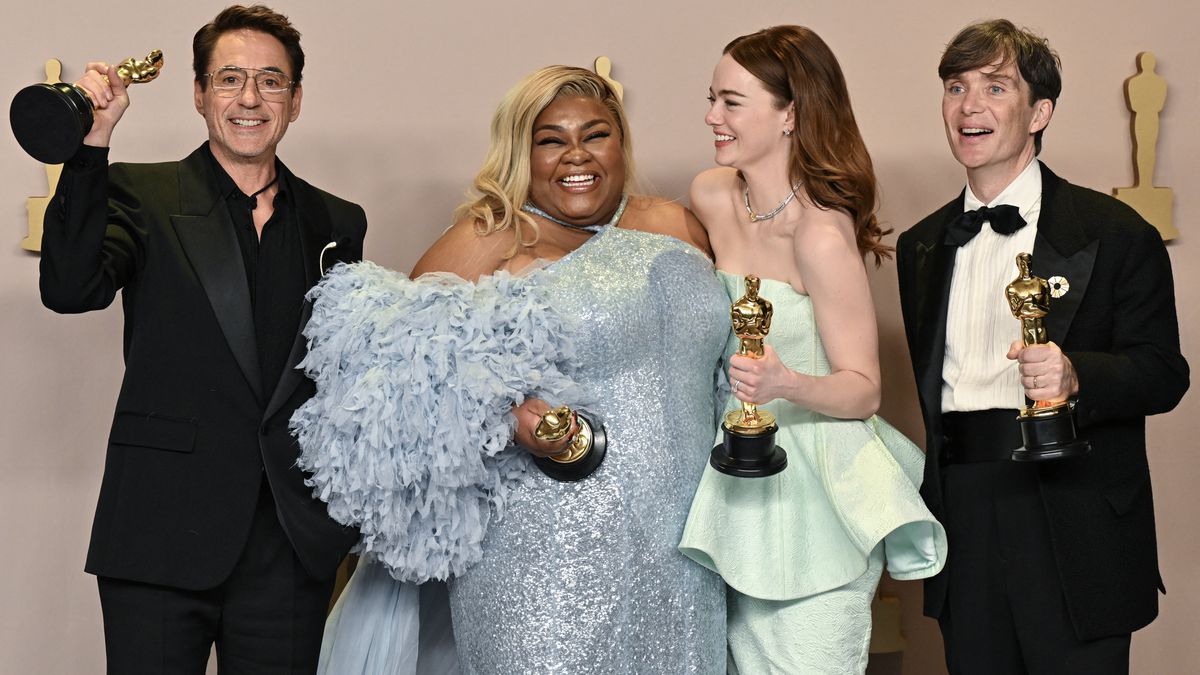
Frightening as school shootings may be, what is perhaps more frightening is the individual and their story behind the tragic events.
And although “We Need to Talk About Kevin” has a dark overtone and theme, its characters and production provide for an entertaining and thought-provoking film. Adapted from book originally written by Lionel Shriver, the film remains consistent to the important parts of the novel.
The film is told through the eyes and memory of Eva Khatchadourian, played by Tilda Swinton, who struggled to go on with her life after her son Kevin, played by Ezra Miller, massacred fellow students at his high school. Through flashbacks it is shown that Kevin and Eva have had an extremely tense relationship, and that Kevin showed malicious tendencies beginning in infancy. As a baby and an infant, Kevin never smiled around his mother and is disdainful of her personal possessions.
As Kevin grows up, his persona becomes darker and his actions show signs that a dark and gloomy life is in his future. While his father Franklin, played by John C. Reilly, dismisses his behavior as side effects of adolescence, his mother suspects that her son is seriously disturbed, which culminates in tragic events.
The strength of “We Need to Talk About Kevin” comes from the performances of Swinton and Miller, the cinematography and sound production. Swinton, an academy award winning actress, becomes a sympathetic character within the first few minutes of the film. Within the rundown and decrepit house that she lives in, there are many visible empty bottles of wine and prescription pill containers.
And while she tries to carry on a normal life after the “incident,” she is haunted by flashbacks and relatives of the victims. Her facial expressions show a type of paranoia that those around her are unaware of, and perfectly portray a woman who feels as if she is frightened of the world around her. Her lack of interaction with others shows Eva’s personal isolation in a town she once considered home.
On the other hand, Miller portrays the perfect sociopath that generates little, if any, sympathy for Kevin due to his malevolent nature. Kevin frequently shows disrespect to his mother while putting on an angelic façade in front of his father, and is quite cruel to his younger sister. While being sinister and mischievous in one scene, he can change his facial features in an instant to mirror those of a young teenager.
In order to show an intense and thrilling film, the production crew filmed shots and sequences where it was often just Kevin and Eva, but there were often few words spoken between them. The sound is completely blocked out in order to focus on the short and succinct dialogue between mother and son. In the entire film there is only one happy, bonding moment between them, but it soon descends back into torment and tension.
The sound effects also add to the dark nature of the film, and throughout “We Need to Talk About Kevin” there are screams heard in the white noise technique. There are scenes where the sound effects do not match what is happening, but are indicative of other incidents. Often Swinton’s character will be alone somewhere but the noises around her will be amplified to the point where she cannot concentrate, and lapses into a disturbing flashback. The flashbacks are perfectly juxtaposed with the present, and the audience can feel the confusion that Eva is going through. This type of production keeps the viewers on their feet in anticipation of the next shocking scene; in one moment there can be a chaotic mixture of sounds and voices and their quickly transition into an eerie silence.
There really is never a dull moment in “We Need to Talk About Kevin” and even the soundtrack works well with the film. In contrast the films dark mood, the director Lynne Ramsay used more mellow tunes including songs from Lonnie Donegan, Buddy Holly and the Beach Boys. To those looking for a psychological and nihilistic themed movie, they will not be disappointed if they choose to see “We Need to Talk About Kevin.”
Adam Colorado can be reached at [email protected].












